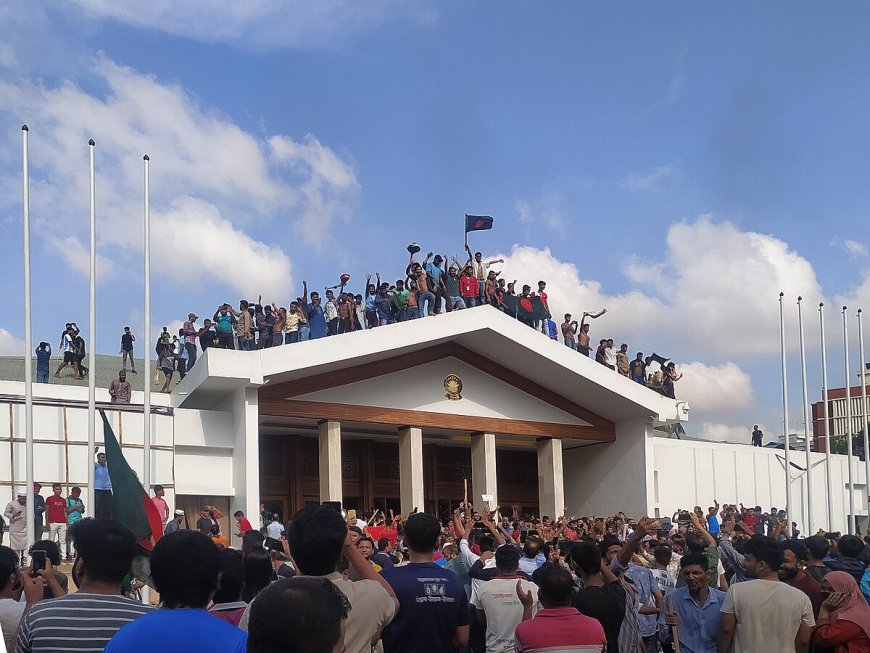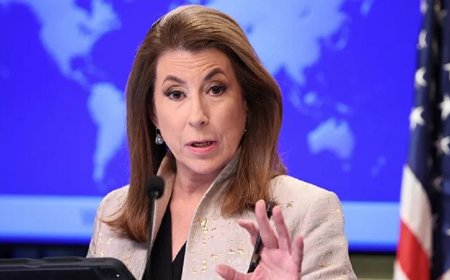British MPs express concern over the political crisis in Bangladesh
British MPs express concern over the political crisis in Bangladesh

- More than 1,000 deaths reported, including those from mob attacks and lynchings.
- Politically motivated charges filed against over 194,000 supporters of the Awami League.
The Commonwealth All-Party Parliamentary Group (APPG) has released a detailed report on the aftermath of Bangladesh's political crisis following the fall of Sheikh Hasina’s government on August 5. The report highlights a volatile combination of political, social, and security challenges under the interim administration led by Nobel laureate Professor Muhammad Yunus.
Key points from the report include:
-
Widespread violence and human rights abuses: The report paints a grim picture of escalating violence, human rights violations, and rising sectarian tensions, all of which threaten the nation’s stability and its international standing.
-
International concern: British Foreign Secretary David Lammy expressed grave concern, emphasizing Bangladesh’s strategic importance due to its strong ties with the UK, including its large diaspora. He warned of potential international repercussions if the crisis intensifies, particularly the growing influence of Islamist extremism.
-
Call for coordinated efforts: Lammy urged for coordinated actions to support democratic governance and protect minorities in Bangladesh.
-
APPG inquiry focus: The APPG’s inquiry was triggered by Bangladesh's importance as a Commonwealth member, a key trading partner, and home to a significant UK diaspora. The report was compiled from written and oral testimonies, as well as media reports, to raise awareness among British policymakers and international stakeholders.
-
Political turmoil: Following the fall of Hasina’s government, violent clashes erupted. By the end of August, over 1,000 deaths were reported, including those from mob attacks. Minority communities and opposition figures were especially vulnerable, and significant cultural sites, like the Bangabandhu Memorial Museum, were targeted.
-
Mob violence and lynchings: There was a notable increase in mob lynchings, with 21 people reportedly killed within just over a month. Hindu temples were looted and destroyed, including the shrine of Hazrat Shah Poran.
-
Human rights concerns: The report highlights a surge in politically motivated charges, with over 194,000 Awami League supporters facing accusations. The legal system is being used as a political tool, with former government officials, MPs, journalists, and others facing serious charges, raising questions about the fairness and integrity of the legal process.
-
Crackdown on journalists: The report notes an increase in the targeting of journalists perceived to support the previous government. At least 54 journalists have been charged, and many remain in detention, further deepening political divides.
-
Religious and minority persecution: Minority communities, including Hindus, Buddhists, and Christians, have been disproportionately affected by violence, with thousands of families experiencing attacks on homes, businesses, and places of worship. The report documents 69 cases of temple vandalism and numerous other incidents, including rapes and home invasions. Indigenous groups in the Chittagong Hill Tracts (CHT) have also faced targeted violence.
-
International condemnation: Global rights organizations, including Amnesty International, have condemned the violence and called for immediate protection of indigenous groups.
-
Strategic importance of Bangladesh: The APPG stressed the significance of Bangladesh to both the Commonwealth and the UK, particularly its position as South Asia's second-largest economy and its role in hosting over a million Rohingya refugees.
-
Appeal for action: The report urges the UK government and other international stakeholders to engage with Bangladesh’s interim administration to restore stability, uphold human rights, and support democratic governance.
What's Your Reaction?




















































































